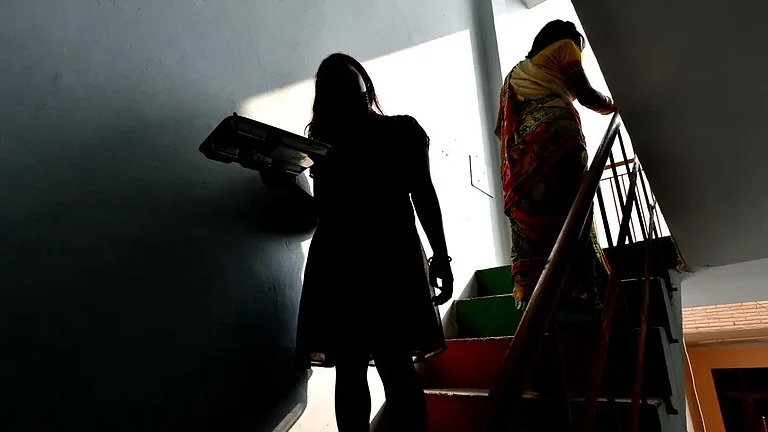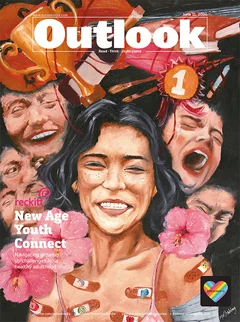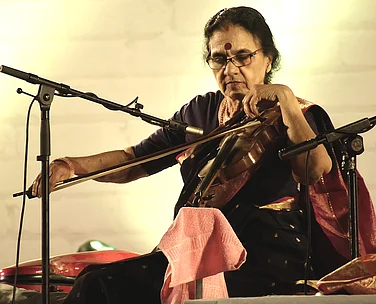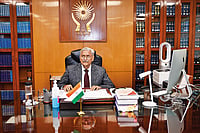The Birds and Bees Talk (TBBT) project is educating youth and children in the north-eastern states on the principles of inclusion, equity, awareness, consent and protection to help them transition to adulthood in a healthy and responsible way. The project is currently being implemented in Arunachal Pradesh, Nagaland, Manipur, Meghalaya, Mizoram and Sikkim. We spoke to a cross section of parents of school-going or out-of-the college children on a host of issues. How are children today different from those of yesterday in terms of exposure to issues like sexual conduct? What is the family’s response to TV programmes showing sexual content? What are the apprehensions about mobile usage given the privacy it affords? What is the family’s response to LGBTQIA+ debates on public platforms? What are parents’ top concerns? What do they think of sex education in schools? How do they view and respond to new age challenges like cyber security? While most of the parents expressed concern about the challenges children and young people are negotiating in the face of growing exposure to such issues, the important takeaway from some parents is the need for sex education in schools in a responsible manner and sensitisation of children on LGBTQIA+ issues.

Tilak Gurung, 44
Govt. Employee, Gangtok, Sikkim
‘TBBT Has Helped Our Daughter Make Informed Choices’
1. TBBT Impact: It provided my child with the knowledge, skills, and confidence to make informed decisions about their sexual health and relationships and has also enabled open and honest communication within our family. TBBT has helped our daughter ask more questions and make informed choices.
2. Teenagers Today: They have greater access to information about sex-related issues because of the increased exposure to social media.
3. TV Programmes: I am not very comfortable watching TV today showing sexual content.
4. Mobile Phones: My worst apprehension is they may get misinformed on various things and may get misled by strangers online.
5. LGBTQIA+ Discourse: We are hardly comfortable watching TV when these issues are discussed openly.
6. Parents’ Concerns: Education, employment and safety from drugs in schools/colleges are our topmost concerns.
7. Sex Education in Schools: It is important that it is imparted in schools as we do not discuss it openly at home. If it is taught in schools, then it will help our children understand their health and other related issues.
8. New Age Challenges: We discuss internet security as it is the most concerning topic. Every day, many cases concerning online bullying and harassment arise. We try to talk about the security measures they need to take while using social media. We also try to have discussions asking them not to share any personal information with strangers online.

S. Hukavi Zhimomi, 61
Ex MLA , Dimapur, Nagaland
‘Moderation Is Key’
1. Teenagers Today: Due to society’s progress and education, the children of this generation have become more modern. They have become independent, and their parents can no longer keep them under control.
2. TV Programmes: TV shows offer a wealth of information and can be an excellent learning tool. However, it’s crucial to be discerning and embrace the positive influences while rejecting negativity.
3. Mobile Phones: Like anything else, moderation is key. Excessive phone use can negatively impact a teenager’s future if it overshadows other responsibilities.
4. LGBTQIA+ Discourse: These topics must be entirely avoided in public. While some may have personal interest in LGBTQIA+ topics, these discussions are best suited for private exploration.
5. Sex Education in Schools: The matter is purely private, and it should not be brought into the public domain.
6. New Age Challenges: Everyone must restrain himself/herself from cultivating bad habits and learn to be safe from infections and diseases.

Akepi Linggi Ehili, 41
Govt. Employee, Lower Dibang Valley, Arunachal Pradesh
‘No LGBTQIA+ Content On TV, Please’
1. Teenagers Today: Today’s teenagers are exposed to adult content. However, the understanding of the impact may vary from parent to parent.
2. TV Programmes: I am not comfortable with watching sexual content on TV with my children.
3. Mobile Phones: My worst fear is about children getting access to adult and violent content.
4. LGBTQIA+ Discourse: I don’t support TV airing LGBTQIA+ debates.
5. Parents’ Concerns: My greatest worries are related to health, exposure to sexual content on TV/ social media, access to drugs in schools/colleges, education and employment.
6. Sex Education in Schools: It should be provided appropriately. However, gay and LGBTQIA+ issues should be avoided in schools. Awareness about these issues may be created at the college level.
7. New Age Challenges: My children are very young. However, we will make them aware as they reach appropriate ages.

Paul Thongkhomang Touthang, 54
Social Worker, Aizawl, Mizoram
‘Sex Education Will Be Useful If Expertly Conducted’
1. Teenagers Today: The Internet has made adult and pornographic content easily accessible to teenagers across platforms and devices.
2. TV Programmes: We feel extremely uncomfortable watching sexually explicit scenes on TV with our family.
3. Mobile Phones: Children as young as three are using smartphones for hours each day. This trend is alarming because it can negatively impact their eyesight and mental health. Parents may struggle to teach them about the normal processes of life.
4. LGBTQIA+ Discourses: For parents, witnessing such discussions in public with their children can be awkward. However, private conversations on such sensitive subjects can be a valuable opportunity to educate our children.
5. Parents’ Concerns: The overwhelming concern of parents is regarding the career prospects of their children. Their health and well-being are definitely another matter of great concern. Safety from drugs in schools is also very important and parents and the school should take precautionary measures and offer support, if needed.
6. Sex Education in Schools: For it to be useful, sex education needs to be expertly conducted and delivered as it is a highly sensitive topic. Religious institutions such as churches and mosques could also play a role in educating young people about sex.
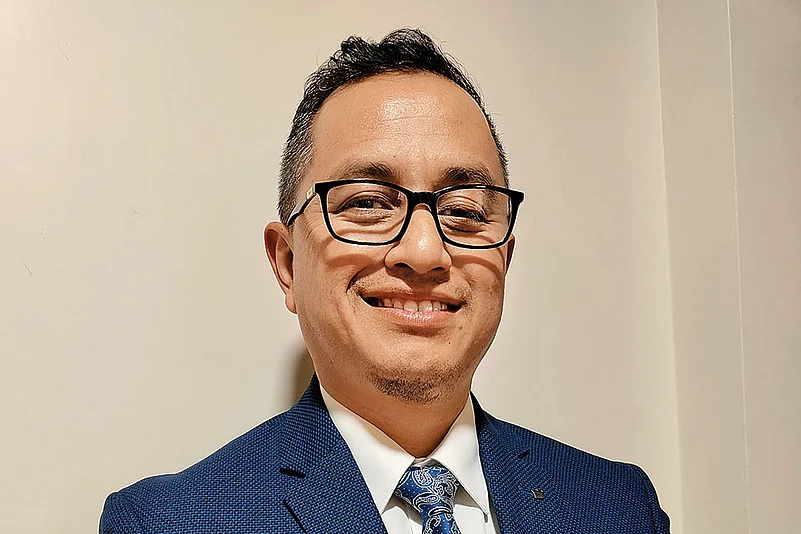
Dylan Syiem, 40
Govt. Employee, East Khasi Hills, Meghalaya
1. Teenagers Today: In Meghalaya, teenagers in the urban setting are very well aware of and open to adult issues, unlike the youth in the old times. However, in the rural areas, despite being aware, they are not very open to issues like sexual conduct.
2. TV Programmes: While watching TV shows featuring sexual content, I am comfortable to an extent since the children are aware and it doesn’t cause any harm.
3. Mobile Phones: My worst apprehension is that the social media algorithm will bring feeds that have adult content, not just sexual content, but language, thought processes, etc, that are not appropriate for children.
4. LGBTQIA+ Discourse: The issue is not about being comfortable. It is about I being prepared with the right answers and explanations for the questions that may arise
5. Parents’ Concerns: Health is the top priority, followed by the drug menace.
6. Sex Education in Schools: It should start early with the parents’ consent and should not remain confined to urban areas. The teachers handling the topic must be sensitised to the new methods of imparting sex education to children and youth of all ages.







_.jpg?auto=format%2Ccompress&fit=max&format=webp&w=768&dpr=1.0)


